“Epitome of a thriller…not only keeps you on the edge of your seat, the characters are well-developed and the writing is tight and well-edited. You won’t be able to put it down…”
an excerpt from
The Watchman’s File
by Barry Lando
Copyright © 2014 by Barry Lando and published here with his permission
PROLOGUE
Stockholm, February 1943
Kowalski couldn’t believe his luck. An intelligence coup for the history books!
The next morning in Stockholm, he passed the unprocessed microfilm and the wire recording, along with a coded report, to the courier. Then he walked back toward the Karl XII Hotel.
He was so exhilarated that he never noticed the heavyset man in a leather jacket walking toward him until the man blocked his path, smiled a great friendly smile, and asked in Swedish for a match. He reeked of garlic.
Kowalski said he didn’t smoke and attempted to step around him.
“Halt! stehen bleiben,” barked Garlic Mouth in German. He pulled his left hand from his pocket to reveal a snub-nosed Beretta. A black Mercedes sedan swished to a halt at the curb. The back door swung open.
“Herein,” ordered Garlic Mouth. He jammed the Beretta into Kowalski’s spine and propelled him into the rear seat. A burly confederate already sitting there yanked Kowalski’s arms behind him and snapped handcuffs on his wrists. Then he stuffed a filthy rag into his mouth, and slipped a coarse woolen hood reeking of fuel oil over his head. Kowalski gagged. He felt the bile rise in his throat; he would suffocate in his own vomit. He tried to remember his months of training. Don’t panic. Keep alert. Stay in control. Easy enough for his instructor to say.
After what seemed about half an hour, the car stopped. A revolver was thrust in his ribs. He was propelled out the door, grabbed by the arms, frog-marched forward ten steps; then down a flight of stairs.
It stank of soot and coal dust and sewage. Fifteen more steps, then left, another door, more steps; he was backed onto a wooden chair.
The hood was yanked from his head; the rag pulled from his mouth. He closed his eyes momentarily to the glare. He was in a small, dank basement room. There were no windows, just a single bright overhead light.
Garlic Mouth and his friend stood on either side of the chair. Facing Kowalski across a pine desk was a slim, elegant man with the palest of blue eyes and a thin blond moustache. He would have been handsome, almost beautiful—a movie star or male model—were it not for the left side of his face, mottled red and cratered as if roasted in a blaze. His neck was hidden by a brown foulard. He had an unlit cigarette in his mouth. His voice was high, almost a woman’s, and calm, so calm, as he began in German.
“Your name?”
“Stanislaw Kowalski.”
“You are from where?”
“From Warsaw.” He struggled for outrage. “I am a Polish businessman and—”
“You lie,” said the man quietly. He nodded toward Garlic Mouth, who grabbed Kowalski’s wrists, still cuffed together, and wrenched them violently upward. An excruciating pain ripped through Kowalski’s shoulders and shot across his back.
“Schweinhund!” screamed Kowalski.
“Your name is Avi Ben Simon,” said the inquisitor, reading from a paper in front of him.
The prisoner’s gut tightened again. “No. Stanislaw Kowalski,” he insisted. He could feel the sweat trickling down his back.
Another cheerless nod. A second vicious jolt from Garlic Mouth left the prisoner gasping with pain.
“You are Avi Ben Simon. You are from Warsaw–but not a businessman. You are a Jew. A spy.” The inquisitor stood—he was tall, well built—and came around the table to stand before the prisoner. He wore a soft, fragrant cologne. He showed the prisoner the paper he’d been reading from. The prisoner said nothing; there was no point. His shoulders felt as if they’d been ripped from his body. The pain throbbed through him.
“And so, you see, we know all about you. Now why don’t you fill in a few details? Then we can all go our separate ways.”
So this is ihow it ends, thought Avi Ben Simon. What irony: to flee the Nazis in Warsaw; to be trapped by them in Stockholm. No hero’s return to my new homeland.
But he could still win, if he could only control his fear. There’d been instruction on this from a psychiatrist during training: If caught you can expect to be tortured. Brutally. These Nazi thugs knew nothing about the conversation he’d recorded yesterday, nor that he’d been able to dispatch it with the courier. Avi would give them nothing.
In the cellar, the interrogator continued solemnly with his questions. Avi refused to answer. They finished wrenching his left shoulder from its socket. He shrieked with pain. What was it the psychiatrist had said? If tortured, the only escape is to go into yourself, as deep and dark and as far as you can. They paused for a question. Then they wrenched the right shoulder. Another question. No answer.
As deep and dark and far as you can.
So, as the Germans meticulously shattered his body, Avi fled to the past. He summoned memories, frame by frame: A sesame cake still warm from the oven—an incredible luxury. It was the last meal with his family before he crawled through the sewers and escaped to the forests North of Warsaw.
They began breaking the bones of his fingers. They bent them until Avi could hear them crack, one at a time, like the wishbone of a Friday-night chicken. He wouldn’t talk. He-would-not-talk. He was holding hands with Hannah Lebel from across the street in Warsaw. She laughed as he told his clever jokes.
When he lost consciousness, they revived him with smelling salts and a bucket of freezing water. And still he fled. He sat proudly in the State Loge of the Warsaw Conservatory as his mother played Chopin. And now it was coming, he dimly thought. He was a child by the pond in Wenceslaus Park, watching the marvelous toy sailboat his father gave him, as it caught a gust and glided off across the waters. It could glide forever.
The inquisitor realized he’d lost his prisoner and wearied of the game. He gave a final sad nod. Garlic Mouth wrapped his left arm around the captive’s head, seized his chin with his right hand, and twisted sharply, farther than Avi Ben Simon had ever turned his head before.
Chapter 1
Recently, in Israel
Dov Ben-David cursed as he strode down the hill at Ein Gedi. He’d been looking forward to an afternoon at home on the kibbutz when the call came. It was Hannah Ginsberg at the kibbutz’s spa, a quarter mile away by the turgid, gunmetal waters of the Dead Sea. The computer had crashed—again.
“So? Reboot,” said Dov.
“I did. Still doesn’t work.”
“What about Schmuel?”
“In Beersheba.”
Son of a bitch. The entire spa paralyzed because of a Paleolithic computer and a klutzy manager. So here he was: Dov Ben-David, the former deputy director of Israel’s feared Mossad, the man responsible for liquidating anyone who posed a mortal threat to the Jewish State—from Palestinian terrorists to Iranian nuclear scientists—here he was, turning his day upside down to deal with a problem a ten-year-old child could fix. But not Hannah Ginsberg. She’d drown in a saucer of tea.
Dov was a tall, lanky man, with great bushy eyebrows and dark, penetrating eyes; seventy-two years old, sinewy, and fit. He wore khaki shorts, sandals, and a tattered straw hat to shield his balding head. It was hot, bloody hot: perspiration was already coursing down his ruddy face. He should be at home, napping, before undertaking his daily afternoon of writing and research on one or another arcane topic of ancient Israeli archaeology.
What better counterpoint to a life dedicated to duplicity and death? Since his first years at Ein Gedi, Dov had become obsessed with deciphering the past. Now, in retirement, he could spend all the time he wanted exploring the ancient ruins, caves, and crevices on the Israeli side of the rift valley that had been home to man for the past four thousand years. In a moment of weakness, he had also agreed to use his once-feared organizational skills to help run Ein Gedi’s Dead Sea Spa. That, he now knew, was a major mistake. He’d resign at the end of the year.
He walked into the coffee shop, glared at Hannah Ginsberg, and headed for the computer at the cashier’s desk. Hannah shrugged, brought him a cup of tea, and then went back to wiping off the countertop. Avram Levy, the graying, pudgy kibbutz security guard, was at the food counter concentrating on his daily crossword puzzle. Three tables were filled with French tourists having an early afternoon snack.
Dov took a seat at the cashier’s desk and glowered at the computer: an ancient, hulking IBM, an embarrassing relic. The kibbutz could never seem to find the money to buy a new one. Dov waited while it rebooted. It was like watching the tide come in.
Hopefully, he might still have an hour or so back at home before the American reporter arrived, a chance to shower, collect his thoughts. He was surprised at how rattled he’d been by the news. Was it age? Not at all. His mind was still fit. He’d had to deal with all kinds of alarming information during his long clandestine career. But he knew when to push the panic button, and he knew it was now.
The potential for disaster was far too fearsome to be ignored—and still he had hesitated. This was perilous ground. Let someone else act this time. He had spent too much of his life risking his skin for his country. Why put himself on the line again?
Essentially, because he had no choice: he alone understood the danger. The consequences could be catastrophic—for Israel and the United States.
He’d considered his options. He could alert old Israeli contacts; he had an impressive network. But no, that wouldn’t do. He had to reach out further for allies. He had to totally destroy the threat.
So he’d made the call.
The reporter would be here in a couple of hours.
Together they would expose the entire story to the world.
He vaguely saw the silver van come to a stop in the no parking zone next to the entrance to the spa. A young Arab-looking kid in jeans and a T-shirt got out and walked quickly away. A bit too quickly. “Avram,” said Dov, ”Why don’t you check out the van.”
He turned his attention back to the computer, but when there was no acknowledgement from the security guard, he looked up again to see the men’s room door swinging shut. He glanced towards the window again.
Suddenly there was a blinding flash.
He swore aloud, but his words were lost in a deafening blast that shattered the plate glass window before him.
He saw the silver van disintegrating as it hurtled toward him, and then there was nothing more to see.
A giant claw ripped at his throat and lifted his body into the air, slowly, as if in a dream.
* * * *
El Al flight 746 from Paris bounced once on the runway and then swerved slightly to the left as it raced past the control tower, flaps down and reverse thrusters roaring. Ed Diamond could feel his pulse beating wildly by the time the Boeing 737 lurched to a halt with a squeal of tires. This is what happens when fighter pilots become airline pilots, he thought as he retrieved his laptop and suitcase from the overhead bin. Ed himself was a lousy flier, always had been—the original sweaty palms. Not much of an asset for a reporter who made his living traveling around the globe. The stewardess whom he’d been chatting up during the flight rolled her eyes and smiled apologetically as he headed for the exit.
The plane was half empty; few tourists were coming these days. Three burly young men, M-4s bulging under their canvas jackets, stood at the gate. They surveyed the deplaning passengers as if, at any moment, one of the arrivals might lob a hand grenade or loose a murderous blast from a Kalashnikov.
They were the only discordant note to the modern, brilliantly lit hallways, the pageant of glitzy billboards and sprawling duty-free stores celebrating the country’s glittering hi-tech façade. The only country with more cell phones per capita is Finland, the home of Nokia, he thought.
At the immigration counter, a beady-eyed woman with the rank of captain licked her thumb as she turned the pages of Ed’s passport. If it had been Kennedy in New York, the immigration officer would have greeted him with a wide, ego-soothing smile of recognition and complimented him on the latest broadcast. Not the scowling Israeli captain. She examined the stamps from Damascus, Kabul, Tripoli, and Teheran with growing concern and then flipped back to page one to scrutinize Ed’s picture and data—born Seattle, Washington; 6’1”, hazel-blue eyes, brown hair. She lifted her eyes and glared at Ed as if he were the new head of Al Qaeda.
“You’ve been to all these places?”
“I’m a reporter.”
“For what company?”
“NBS. American television. A program called Focus.”
She raised her eyebrows. “You have a reporter’s ID?”
He showed the press card he’d been issued on his last trip to Israel.
“You’ve come to tell the truth about Israel?”
Ed understood it wasn’t a joke. “I always do.”
“Sure. You all do,” she muttered. “OK. Go ahead.”
“No ‘Shalom. Welcome to Israel’?”
She ignored the gibe and gestured impatiently for the next person to step forward.
The newspapers carried unconfirmed reports that Syria had put its troops on alert. Despite the Wall, there’d been another upsurge of terrorism in Israel: a suicide bombing in Nathanya, a drive-by shooting last night near Jenin.
But the real shocker was news of an American missile strike on an underground biological weapons site that was being constructed in the tribal areas of northwestern Pakistan. According to latest reports, the site was a joint project between Al Qaeda, the Taliban, and—most surprising of all—a small, radical Palestinian group, the Sons of the Prophet, its followers dedicated to annihilating the state of Israel.
Outside the terminal, the warm afternoon breeze carried a faint scent of eucalyptus. Ed had removed his suede windbreaker and was wearing a white linen shirt and light brown slacks. He walked past the drivers lounging by the taxi station to the Avis lot, where he picked up the Ford Mustang his office had reserved.
He drove east along the highway to Jerusalem, past the urban sprawl of Greater Tel Aviv: high-rise apartments and high-tech factories that spread across the coastal plain eating into the green strips of farmland, where sprinklers sprayed glistening arcs. Then up into the Judean hills with their shady forests of pine, cypress, and eucalyptus. He had been coming here for the past fifteen years, often to see the same man he’d been summoned to meet today, Dov Ben-David.
Ed had first met Ben-David when he was researching a story about Hamas and arms smuggling from Egypt. It was a tale the Mossad wanted to get out, and Ben-David was their acknowledged expert. He provided enough nuggets about the radical Palestinians to win Ed another Emmy. After that, Ed continued consulting Ben-David on everything from the Russian Mafia to the financial networks of Osama bin Laden to Iran’s nuclear program. Ben-David had impeccable sources everywhere. “The tools we use may be brutal,” he once told Ed. “But remember, we are fighting for our country’s survival.”
Over the last few years, however, Dov had increasingly questioned Israel’s tactics; though, of course, only in private. Ed recalled the last time he’d seen him. It was just after the massive attack on Gaza. Dov was still the Mishne, as he was called in Hebrew—but he’d become sullen, scowling, oppressed by the increasingly bloody conflict with the Palestinians. What had begun under his guidance as a very precise campaign—carefully planned, targeted assassinations of the most radical Palestinian leaders, the men who trained and commanded the missile teams and suicide bombers—had spiraled completely out of control.
The TV screen was now filled each day with grisly images of noncombatants—old men, women, and children—also blown apart by Israeli helicopter gunships and drones. In some cases, the Israeli government actually apologized to the bereaved families for their “mistake.”
“At first I thought the idea of targeted assassinations might work,” Ben-David had told Ed. “I mean if the Palestinian leadership wouldn’t get rid of their killers, we’d do it ourselves. But it hasn’t worked. It’s made things even worse. Now our crazies are as wild as theirs. God knows where we’re heading.”
A couple of months later, Ben-David resigned from the Mossad and returned with his wife to the kibbutz at Ein Gedi.
There had been no further word from him—until yesterday. Ed had been in the edit room of his office in Paris, contemplating the image of a gangling African boy on the Sony monitor. The kid wore an Avatar T-shirt and brandished an AK-47. He couldn’t have been more than ten or eleven; he glared at the camera with wild, dilated eyes.
It was a spectacular image for what was to have been a sensational report: hopped-up child soldiers exploited by ruthless buccaneers ready to rip apart a swath of Africa to make a fortune in diamonds. A brutal, cynical trade that the UN and all the countries involved had sworn to suppress years ago, but there it was, still flourishing. Yet Ed’s report wasn’t working: the issues were too complex, the politics too convoluted. There were too many countries no one cared about. The thing would plunge the viewers into a coma.
Bottom line: it was not the kind of broadcast Focus’s star reporter was supposed to be coming up with, particularly not now as he jockeyed for a decisive promotion. He had been promised a weekly hour-long broadcast of his own, with the notoriety, power, and seven-figure salary that went with it. It was everything he’d been working toward for the past twenty years.
But right now, he still had this African mess to clean up, somehow.
He was interrupted by his assistant, Colleen Fisher. “Ed, call for you—from Israel, Dov Ben-David.”
Ed cocked his head to one side, his forehead creased. “Tell him I’m not in,” he said. “No, tell him I’ll call back when I get a chance.”
Dov Ben-David was a nice guy, but no longer what you might call a hot source.
“He says he’s got to talk to you—now.”
“Merde,” Ed muttered as he picked up the phone. “Dov,” he said heartily. “It’s been a long time.”
“Maybe, Ed. But it’s a battle just getting through to you.”
“No, it’s just that…”
“It’s OK. A lot of people are no longer particularly eager to take my calls.”
“Any time,” said Ed, trying to sound interested.
“You know what I worry about these days?” said the Israeli. “Not terrorists, but tourists. God help me if I don’t have enough toilet paper and sanitary pads in stock, But don’t worry. I didn’t call to waste your time with the kvetching of an old man.”
“So, what can I do for you?”
“Come and see me in Israel. Now. It’s very important.”
“Love to. But I have work. What’s it about?”
“I can’t say right now, you understand?”
“How about a hint?”
“Ed, look, something has happened.” Dov’s tone was urgent. “It is about your country and mine. It is serious—believe me.”
“Yeah?” Ed still wasn’t convinced.
There was an edge now to Dov’s voice. “When was the last time I picked up the phone to tell you about a report you should do?”
“Never. I always had to pry the information out of you.”
“So—stop making me waste my breath. Come!”
Ed paused. He glanced at the images on the editing console again. Perhaps Ben-David was losing it—but perhaps not. He had never been one to exaggerate. Ed could make it to Israel and back in a couple of days. It would be a welcome break from this African quagmire.
“OK. I’ll be there tomorrow afternoon. And Dov?”
“Yes.”
“Tell Esther I never forgot her borscht.”
****
Another hour and a half to go, thought Ed as he sipped a bottle of water. He bypassed Jerusalem and continued through hardscrabble gulches, home to a few remaining Bedouins, their camels and donkeys hobbled next to their battered pickups. The road turned south, dipped into the Judean Desert. On the right, the bone-dry mountains and gorges of what geologists call the Afro-Syrian Rift; ahead and to the left, the Dead Sea shimmered in the late-afternoon heat.
Suddenly, a police car flashed by, its siren howling, dust flaring in the sun. Careening after it, with the same banshee wail, came another police car, then another.
A terrorist attack at Masada or Beersheba, thought Ed. It was just after five p.m. He turned on the car radio and found the English-language news broadcast from Kol Yisrael.
“….three other people were injured. The blast occurred at three forty-five this afternoon. According to reports, the explosive charge was placed in a Volkswagen van parked near the café. Two of the injured were tourists. No one has yet claimed responsibility.
“Meanwhile in Damascus, the US secretary of state refused comment after completing talks with the Syrian president. Sources close to the secretary were ‘disappointed’ by the lack of progress.”
Jesus, thought Ed as the announcer rattled on, how the hell can anyone live with the constant tension in this place, the threat of violence always ready to explode? A military jeep and van roared by, headed north.
At the turnoff for the kibbutz, he saw where all the emergency traffic was coming from: a few hundred yards down the highway was a cluster of military jeeps and trucks. Soldiers in olive-green battle dress had cordoned off a group of buildings by the Dead Sea: the Ein Gedi Spa.
Ed parked and walked to the checkpoint. A gaggle of German tourists had stopped, and one of them, a potbellied blonde, was chattering into her cell phone, giving a strident account to friends or family in Germany. The others were taking pictures of one another posed in front of the soldiers.
A stringy, gray-haired reservist manned the checkpoint, a TAR-21 slung from his shoulder. Ed produced his Israeli press pass.
“Only emergency workers allowed through.”
“What happened?” asked Ed.
“A car bomb at the spa.”
“When?”
“I don’t know,” the reservist snapped. “Two hours ago. Maybe less. I can’t talk to media.”
The explosion had hit thirty yards away. The van must have been parked by the front door of the spa’s café. Shards of painted silver metal, twisted steel and chrome, were all that remained of the vehicle. The blast had cratered the highway, knocked a hole in the cement wall of the coffee shop, blown out the door and all the windows.
Two investigators in plain clothes were picking through the debris, taking measurements and notes as they went. Three young men wearing bright yellow vests—ultra-Orthodox volunteers from the Zaka organization—were carefully collecting body parts and shards of human flesh, some hanging from the branches of the palm trees, to return to their families for religious burial.
There was still a thin veil of dust and a faint, acrid smell in the air. Ed coughed a couple of times. He could already feel his chest tightening. An army colonel wearing wraparound sunglasses and the double-eagle insignia of AMAN came over. Between coughs, Ed again produced his press pass.
“No comment,” said the colonel. He was obviously from the States originally.
“Just tell me, off the record, what happened?” Ed paused for a breath. “I’ve a friend who lives here.”
“Can’t do.” The officer nodded toward the nearby hill. “Ask at the kibbutz.”
Ed gasped again, and the officer’s eyes abruptly narrowed as the reporter reached for his pocket and withdrew a dark-blue device.
“Asthma,” said Ed. “The dust.” The last thing he needed was for this hair-trigger colonel to think he was reaching for a weapon. He inserted the inhaler in his mouth, pressed, and inhaled deeply. After a few minutes, he could feel the bronchial passages opening, but the relief was only temporary. His breathing was still labored. He had to get away from the site and the irritants swirling in the air.
****
He walked unsteadily to his car, drove back to the highway, and waited there for a few minutes until the attack had receded. Then he took the asphalt road that wound up the hill to Ein Gedi, passed a soccer field, where teenagers in blue shorts and T-shirts scampered about as if car bombs were a daily occurrence, and pulled into the parking lot by the dining hall and a newly built auditorium. Children ran laughing through sprinklers that watered the thick green lawn. Tidy flowerbeds lined the paths leading to the bungalows. This could be a middle-class suburb anywhere in the Southwest, thought Ed, if it weren’t for the Israeli flag flapping in the breeze, the security fence ringing the entire settlement, and those young men back at the blast site and their baskets of human flesh.
There was a cluster of people at the entrance to the dining hall. They stared at Ed as he approached. He stopped before a squat man wearing a Dodgers baseball cap, sandals, and khaki shorts. He was peeling an orange.
“Shalom,” said Ed, “can you tell me where is the house of Dov Ben-David?”
“Who wants to know?” The man put a wedge of orange into his mouth.
“Ed Diamond. I’m, uh, an old friend of Dov’s.”
“It’s too soon to be making condolence calls, don’t you think?”
The man squinted against the sun and tossed the orange peel into the dust. “Dov—he’s dead, alev hashalom, killed by the bomb.”
Chapter 2
Ed could smell the lavender and myrrh the next morning as he passed Ein Gedi’s botanical garden on his way to the cemetery. He’d spent the night at the kibbutz hotel; the mild asthma attack he’d had yesterday seemed to have passed.
Today again the sprinklers were whirring, the vivid green of the lawn in stark contrast to the bleached canyons and parched mountain cliffs. The rows of tombstones were flat and unadorned, bearing names, dates, brief inscriptions. Several sturdy young men, in plain clothes but obviously military security, were dotted around the perimeter of the cemetery.
Ed threaded his way among the hundreds of mourners, many of them prominent government officials in dark suits or sports shirts, small skull caps on the back of their heads. Former Prime Ministers Ehud Barak and Bibi Netanyahu shook hands gravely. Netanyahu was not aging well, thought Ed: puffy jowls, bloated waist. Ehud Olmert huddled with the current head of the Mossad, arm around his shoulders. Ed couldn’t help feeling a certain gratification as he noted the attention that he—a rising television celebrity—was also receiving.
“Ed Diamond,” exclaimed a rasping voice behind him. “What is the illustrious American reporter doing here?” Ed turned to face a slender man in his fifties with thinning gray hair, hooded brown eyes, and a vise-like grip. It was Moshe Weinstein, once the subject of a report by Ed, just before Weinstein resigned as defense minister. “I can no longer be part of a government,” he’d told Ed in their interview, “that refuses to deal seriously with the Palestinians.” It was a headline-making statement from a one-time hawk, a man who had commanded Israel’s vaunted air force. Weinstein had since formed his own “Peace Today” party.
“Damn shame what happened to Dov,” said Weinstein.
“It’s so ironic,” said Ed. “Dov makes it through all those years risking his life on the front lines; then he retires and they get him.”
“You don’t know the whole story,” said Weinstein, reaching up to adjust his yarmulke.
“What do you mean?”
“Normally the spa’s coffee shop is fairly empty at the time the bomb went off—it’s the laziest part of the day. Dov just happened to be there. He took a plate glass window in his face.” Weinstein drew a finger across his neck. “It cut the carotid like a butcher’s knife, almost took his whole head right off.”
“Good God,” Ed shuddered. “What do the police say?”
“A very professional job. Nitrate-based explosives packed in a van. Detonated by remote control, probably a cell phone. We had hoped the Wall would end such attacks. It did for a while; somehow they’re beginning to get through again.”
“Do they know who was responsible?”
“Perhaps. About an hour ago a new Palestinian terrorist group, the Sons of the Prophet, claimed credit. They called Dov an ‘enemy of the Palestinian people’ for the things he did with the Mossad. They warned that all such enemies would suffer the same fate. ‘Allah is Great!’ and all that.”
“That was it?”
“More or less.” Weinstein paused. “Look, I don’t know much about them. I’m no longer in the government. They are supposed to be very small, very secret. But why did they go after Dov? They are playing by new rules. You probably heard that they’re also now involved with Al Qaeda—trying to produce biological weapons in Pakistan.” Weinstein shook his head. “Can you believe it? How do we make peace in this insane place?”
The cemetery was filling up. A heavyset man limped toward them. He had a shock of thick gray hair, a broad, furrowed brow, and a black ribbon in the lapel of his blazer. Ed recognized him at once. It was Dov Ben-David’s younger brother, Arik, much better known in Israel than Dov. He and Weinstein shook hands stiffly, with no pretense of friendship.
To fill the silence, Weinstein formally introduced Arik to Ed. The Israeli’s grip was dry, firm, his voice resonant, the tone of one used to command. “Shalom, Ed Diamond. I’ve heard of you.” His eyes were his most striking feature, a pale emerald green, like the inside of an iceberg. They bore right into you, thought Ed. Not necessarily hostile, just letting me know who’s in charge, like a rhino, or a leopard staking out his turf.
Arik Ben-David was a military hero in a country of military heroes—once one of Israel’s youngest generals. Ed knew the story: After being wounded by shrapnel in Lebanon in 1982, Ben-David transferred to the Mossad; then left the government a few years back to become involved in a variety of successful private enterprises—including some very lucrative clandestine arms deals with China.
“I’m sorry about your brother,” said Ed. “He was a very admirable, decent man. It must be a great loss.”
“Of course it is,” said Ben-David quietly. “Of course.” Something flickered in his eyes. He glanced at his Rolex. “Thank you for coming. Please excuse me, I have to greet others.”
“An interesting man,” said Moshe Weinstein as Ben David walked away. “Both he and Dov were involved with ridding us of radical Palestinians—PFLP and Hamas back then.”
“I knew about Dov.”
“Yes, well, the difference was that Dov regretted each killing. Arik, I think he really enjoyed it. He was actually forced out of the Mossad—too extreme. His son was killed by a Hezbollah rocket in south Lebanon. Deep down he hates the Arabs.
The sun was already high in the sky when the funeral service began. Across the Dead Sea, the pastel mountains of Jordan glimmered ghostlike through the haze. Like Ed, many of the men had removed their jackets. From where the reporter stood, he could see Dov’s widow, Esther, dressed in a short-sleeved black blouse and skirt, her daughter on one side, her son on the other. She gazed unflinchingly at the simple wooden coffin, apparently oblivious to the mourners around her. Arik Ben-David stood behind her, ramrod stiff, his large hand on her shoulder. Remembering the gruesome aftermath of the bombing, Ed couldn’t help wondering how much of Dov Ben-David was actually in the coffin.
There were a few traditional prayers, readings of poetry and texts composed by relatives and friends. The current prime minister spoke, as did the head of the Mossad and Arik Ben-David.
Then a tall, willowy woman who had been standing near Esther stepped forward. Even in somber mourning garb with no makeup, she was striking: her long chestnut hair framed an oval face, full lips, and the same remarkable pale emerald eyes as Arik Ben-David. She carried herself with the sort of poise you don’t learn, thought Ed. It was unaffected, almost regal. He glanced at Weinstein.
“Gabriella Ben-David—Dov’s niece—Arik’s daughter,” Weinstein whispered, as the woman began to speak in Hebrew.
Ed couldn’t understand the words, but her voice, vibrant and clear, flowed over the mourners like a soothing balm. When she had finished, the silence was broken only by scattered sobs from the mourners and the cries of the starlings soaring on the currents of air that rose from the desert. Ed’s throat was tight. He brushed his eyes; Weinstein did the same.
At the conclusion of the service, each mourner placed a few pebbles or flowers on the newly turned earth; then they filed past the widow and her family to offer condolences. When Ed’s turn came, he took her hand. “Esther, Ed Diamond. You probably don’t remember me.” Her hand was limp. “I had dinner at your apartment in Tel Aviv a few years ago.” She stared right through him, dark circles under her eyes. It seemed she hadn’t registered a word. Ed stumbled on. “All I can say is I admired Dov so much, and I—”
She interrupted abruptly, her eyes suddenly ablaze. “I tell Dov not to call you. I tell him. But he doesn’t listen to me. He doesn’t listen.” She paused. Her lower lip trembled. “So now you are not making your interview with him, are you, Mr. Diamond? You make your trip for nothing.”
Ed was stunned by her vehemence. He opened his mouth but could find nothing to say. He was obliged to move on as Esther turned to greet the next mourner. Not sure what to do next, he wandered back through the gardens and ascended a gravel path to a wooden bench that overlooked the Dead Sea.
He sat there, gazing at the shimmering mountains of Moab and tried to fathom Esther’s violent outburst. How could he be responsible for Dov’s death? What was it Dov had wanted to tell him? Something to do with the United States and Israel, he’d said. But what? Ed frowned. This was not really the appropriate moment to ask Dov’s widow, even if she was willing to talk with him. But he had no choice: he’d already booked himself on the El Al flight early the next morning. He waited an hour until most of the mourners had left before he approached the Ben-David home.
It was a modest, one-story bungalow, like all the other dwellings on the kibbutz, faded yellow ochre stucco walls, roof tiles of burnt sienna, several splintered and cracked. No one came to live on a kibbutz to make a fortune. In exchange for your labor, you and your family could count on a roof over your head, three meals a day, education, health care, and—in the early pioneering days at least—the feeling that you were constructing something new and grand, fulfilling the destiny of your people. No more. The dream had been tarnished long ago.
There was a small garden in front of the Ben-David home, a few roses, a bougainvillea, and a towering banana plant that shaded the entrance. The door was open. Inside, it was cool. Esther sat on a beige sofa in the living room with a few close family and friends, all talking softly. She looked up when Ed entered. He wasn’t sure what to expect, but she gave him a wan smile.
“Mr. Diamond, please, come in. Have some coffee and cake.”
Ed poured coffee into a Styrofoam cup and took a seat by the bookcase, next to a couple of men who were turned to each other in deep conversation. A mourner’s candle burned on one of the bookshelves, its light flickering over an old photo of Dov Ben-David: a strapping young man in his twenties, dressed in short sleeves, shorts, and sandals, a Sten gun on his shoulder as he beamed confidently at the camera. Behind him, the mountains of Ein Gedi. Vintage Zionism, more than forty years ago, thought Ed. These days it has a vinegary taste.
The man sitting beside Ed, who had been talking with someone else, now turned to face the reporter. It was Arik Ben-David. “Mr. Diamond. Shalom again.” His smile was warmer than it had been at the cemetery. He glanced at the photo of Dov. “A fine-looking man, yes? And such dreams. We were so naive back then.” He took a sip of his coffee. “You know, I’ve often wondered why the Palestinian terrorists have targeted so few Israeli leaders. Maybe that’s all going to change now.” He shrugged. “It’s just something we will have to live with.”
He took a small piece of sponge cake and then glanced across the room at Esther.
“My sister-in-law says you came here to see Dov.”
“That’s right.”
“What about?”
“He wouldn’t tell me over the phone.”
“Well, then, I suppose we’ll never know.”
“I’d sure as hell like to.”
Ben-David patted Ed’s knee. “Things have changed in this country, Mr. Diamond. Even with the Wall, it’s become a far more dangerous place for government officials, past and present, perhaps even for reporters like you. Here, everything has become a fight for survival.”
“Dov never told you what was bothering him?”
“No. Dov and I lived in such different worlds. But you can’t imagine how much I will miss him.” Arik rose and extended his hand. “Goodbye, Mr. Diamond. By the way, if you do decide to look into this matter, let me know. Perhaps I can help you.” He smiled again. “I still have friends in high places.” He turned and limped across the room, said a few words to Esther, embraced her, and left.
Moshe Weinstein had been listening nearby. “I’ve known Arik forever,” he said as he sat down next to Ed. “I used to admire him tremendously. Military hero. Brilliant businessman. Grandmaster at chess. But now we rarely talk. Today was the first time in years he even shook my hand. The country is going berserk.”
“What do you mean?”
Weinstein glanced at the newspapers on the coffee table. They all carried pictures of yesterday’s bomb attack and a photo of Dov Ben-David. “I mean that the political weather around here is getting very ugly, as bad as it’s ever been: Jews against Palestinians, Jews against Jews, Palestinians against Palestinians. Some of them hate their own people more than they hate one another, and that is saying something.”
“And all sides are convinced they’re doing God’s will.”
“Exactly.”
“And that’s what makes it so interesting for you reporters,” a woman’s voice interjected.
Gabriella Ben-David was standing before them. She had a tight smile on her lips as she handed them some sponge cake. “A peace offering—from my aunt.”
“Peace offering?” said Ed.
“That’s what she told me to say.”
“Thanks. How could I refuse?
“I’ll leave you two to figure things out,” said Weinstein. “Ed, here’s my card. If you’re going to be in Jerusalem tonight, give me a call.”
Gabriella took Weinstein’s place. “I can understand why you might have been surprised by my aunt,” she continued in lightly accented English. “I heard what she said to you by the grave.”
“She thinks I’m somehow to blame for what happened to Dov,” said Ed. “I’ve got an idea that Arik feels the same.”
“No, believe me,” she said solemnly. “It’s just that everyone is still so shocked by what happened. We do not hold this against you. Not Esther, Not my father. None of us.” She raised a hand to push her long hair back from her face. Once again, he was mesmerized by her emerald green eyes. He searched for something to say. “I’m sorry, I don’t understand Hebrew, but what you said by the grave moved everyone. Dov would have been proud. I’m sure your father was.”
“Thanks, maybe he was,” she said curtly. “He didn’t say.” The color rose in her cheeks. “Now come, my aunt would like to talk with you.” She guided Ed to the leather sofa across from Esther. The other mourners had departed. The widow was drawn and gray.
“Mr. Diamond, I am sorry if I am rude before. I hope you understand.”
“Of course. Please,” he put his hand on her shoulder. “You don’t have to—”
“I do know it is not your fault. You are just answering Dov’s call. He insists on calling you.”
Ed hesitated. Esther was exhausted, emotionally drained, but he had to ask. “What was it about? What did he want?”
She looked away. “He—he won’t tell me. He—all I know is that, the evening before he calls you, he is here, reading the paper and watching television, like always. When I come out of the kitchen, he is very upset.”
“What was he watching?”
“I don’t know. Usually CNN. He tells me he cannot believe what is happening.”
“Happening where?”
“I don’t know.” Esther threw up her hands. “He says he doesn’t want me involved. That night he does not sleep. He is up all the time. Walking. Around and around. Like an animal in a cage. For years, I don’t see him like that. The next morning he says he is going to call you. He says he trusts you. I have bad feeling about it. I don’t want him to do it. But he doesn’t listen.”
She stared at the picture of her dead husband on the bookcase. “He doesn’t listen to me—or to Arik. He says it is too important. Someone has to make the alarm.”
“Alarm about what?”
She looked helplessly at the reporter and shook her head. “And then, he has to go back to the spa. Why? Why?”
“But I don’t understand,” said Ed. “The declaration the terrorists made today was that they murdered Dov because he had targeted radical Palestinian leaders when he was in the Mossad. What does any of that have to do with his call to me?”
Esther’s eyes widened. She bit her lower lip.
“Please, what is it?” he asked. “What’s going on?”
She looked at Gabriella.
“It’s all right, show him,” said her niece.
Esther hesitated.
“Dodah, it’s all right.”
Esther walked unsteadily to the bookcase. She opened a cupboard on the left-hand side, removed a piece of paper, and returned. “Yesterday, just before the bomb goes off, the fax rings on Dov’s desk. It is this message.”
She showed the fax to Ed. There were two sentences handwritten on it, in a script that appeared to be Hebrew.
“Can you translate this?”
Gabriella took the paper. “It’s ancient Aramaic,” she said. “It is addressed to Dov and says, ‘Warning to those who commit sins causing dissension in the community, passing malicious information to the gentiles, or revealing the secrets of the town.’ It goes on to say, ‘Next time there will be no warning.’”
“You mean that bomb was supposed to have just been a warning?” said Ed. “It wasn’t supposed to have killed him?”
Esther stared ahead.
“That’s what we think,” said Gabriella. “Usually my uncle would never have been there when the bomb went off. He went to work at the spa early in the morning around eight. Then he would come back around 11:30, have lunch, rest, go to his study, read, write. During the tourist season, he’d go back in the late afternoon, maybe four or five, to see if there were any problems. But yesterday he went back down right after lunch.”
“He has to fix the computer at the cashier’s desk,” Esther explained. “The cashier’s desk is next to the front door.”
All expression had drained from her face.
“Do the police know about this?”
“The Shabak come last night. I tell them the same thing I tell you.”
“They took the fax with them,” said Gabriella. “I made a copy.”
“Esther, I’m sorry to push so hard,” said Ed. “I hope you understand. I’ve got to go now. I’m staying in Jerusalem tonight, but I’m flying to Paris early tomorrow morning.” He took the widow’s hands and continued. “If you do find out more, please let me know. And if I can ever do anything to help, don’t hesitate to call.”
Not a very gracious exit, thought Ed, considering the circumstances: Dov is dead because of what he wanted to tell me—but what the hell was it?
Gabriella accompanied him to the door. “I’ll walk you to your hotel.” The children were no longer playing on the lawn; the sun was at its peak. They strolled along the bamboo-shaded path toward the hotel, Ed very conscious of the attractive woman at his side.
“So that’s it? You’re not going to investigate Dov’s killing any further?”
“Unfortunately, I’ve got to get back to my office. I’ve another report to complete. And then I’ve got to get to New York. Besides, I wouldn’t know where to begin on this. Your intelligence services are supposed to be the best in the world. What could I possibly come up with on my own?” He’d almost convinced himself.
They walked for a while in silence. Her skin gave off a faint scent. Jasmine?
“You mentioned you are going to Jerusalem now. Would you give me a ride? That’s where I live. I came here with my father last night. But he had to go back early. I was going to take the bus.”
“Of course.”
“Great.” She touched Ed’s bare arm. “I’ll go and get my bag. Meet you here in ten minutes, okay?”
Ed watched as she turned toward her aunt’s house. His skin still tingled at her touch. When he looked back, he noticed a tall, broad-shouldered man who looked like an ad for a Nautilus workout at the hotel door. He wore a white open-necked shirt, had an angular Slavic face, and appeared to be in his mid-thirties. He was staring at Ed and made no secret of it. Ed had seen him talking with Arik at Esther’s house half an hour before. He stepped forward to produce an ID card with the blue shield of Israel printed in the center. “Mr. Diamond, Amos Givron, Shabak. We are investigating the bombing. I need to talk with you.”
“Fine. But I really don’t know how I can help.”
“We will see.” He contemplated Ed now with hard, unfriendly eyes. “Please, come with me.”
“I’ve also got to get to Jerusalem tonight.” Ed said.
As if he hadn’t heard, Givron continued into the hotel. Suppressing a brief surge of anger, Ed followed him past the gift shop, where a noisy group of tourists was trying on souvenir T-shirts, and into the cafeteria. The two men bought coffee and then sat at a small table by the window. The only other people in the room were sun-bleached teenagers, a boy and a girl in shorts and sandals, their heads close together, talking softly. The boy had a light blond beard.
Givron glanced at the couple, gazed out the window where hotel guests sat around the swimming pool shaded by giant palms, and then looked back at Ed. “As I said, Mr. Diamond, we are looking into yesterday’s bombing.”
Ed furrowed his brow. “I thought a Palestinian group has taken responsibility, the Sons of the Prophet.”
“They did—at least that’s the e-mail they sent to the press this morning.”
“You don’t think it was them?”
“I said we are still investigating,” said Givron testily.
“But why Dov Ben-David? I mean, he was retired, and he was known to favor a deal with the Palestinians.”
The Israeli looked up sharply. “Mr. Diamond, why don’t you let me ask the questions.”
Ed shrugged. “Be my guest.”
“Why did you come to Israel?”
“Dov called and asked me to come.”
“Did he say what it was about?”
“He didn’t want to talk about it over the phone.”
“I don’t understand, Mr. Diamond.”
The tanned young girl across the room began to laugh softly. Givron paused and glanced in her direction. Her boyfriend had his hand under the table; she had her foot raised between his legs. “Look, you are in Paris, and someone in Israel phones you, tells you to come to Israel, but says he can’t tell you why. And you—a very busy, very famous reporter—you simply drop what you are doing and fly to Israel.”
“No, you look, Mr. Givron. Dov was an old friend. I’d known him for many years. I trusted him. If he said ‘Come,’ that meant it was important.”
Givron’s eyes narrowed. “He helped you in the past—when he was with the Mossad, of course? Just how did he help you?”
“I can’t tell you. You can be assured he gave away none of Israel’s valuable secrets. But that’s as far as I’ll go. I’m a reporter. I protect my sources—even when they’re dead. That’s something authorities in my country understand.”
“You are no longer in your country,” Givron said flintily. “You are here, in Israel. We play by different rules. We are surrounded by enemies. We take our security laws seriously. It’s not up to you to decide if Dov Ben-David broke them by talking to you. It’s up to us. Perhaps what he revealed to you is connected with the bombing.”
Ed felt his temper flare. “Hey, I’m as interested as you to discover who killed Dov! And why! So cut the shit—and back off.” Ed rose from his chair. “Now, unless you’re going to arrest me for something specific, I’m out of here.”
The young couple stared at them across the room. Givron’s jaw tightened. He took a deep drag on his cigarette, exhaled, and smiled grimly. “Arrest you? Who’s talking about arresting you?” He spread his hands wide. “You are free to go. But if you do get any information, we shall expect you to be in contact with us, you understand? Another thing, Mr. Diamond…”
“Yes?”
“An intelligent man like you should be more cautious before he jumps into situations he knows nothing about.” His eyebrows arched. “You are dealing with crazy people here. You get in the way, they kill you.”
… Continued…
Download the entire book now to continue reading on Kindle!

by Barry Lando
4.6 stars – 43 reviews!
Special Kindle Price: 99 cents!
(reduced from $3.99 for
limited time only)

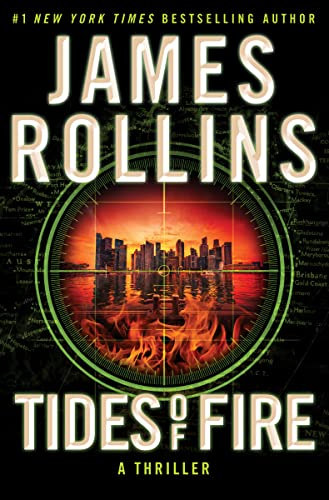

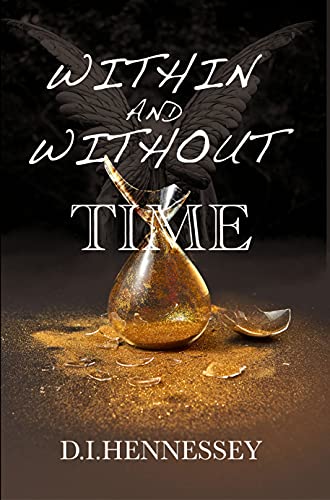
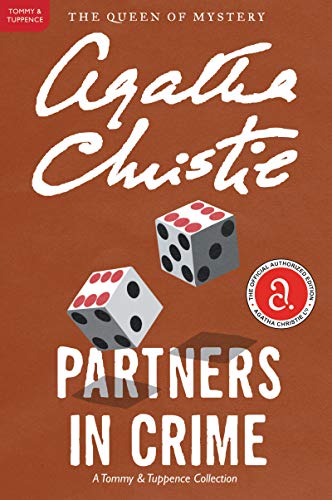
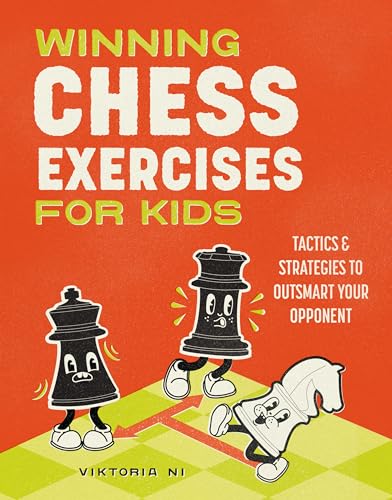


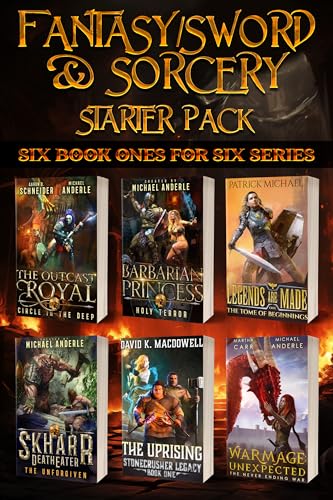
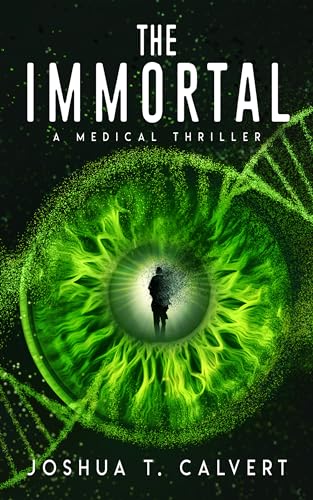
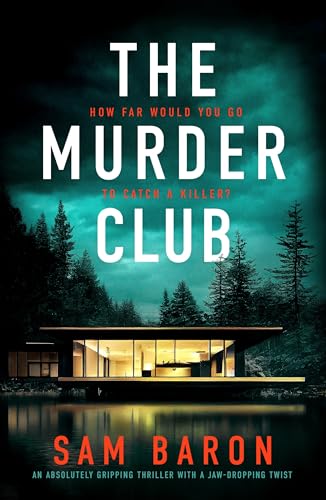
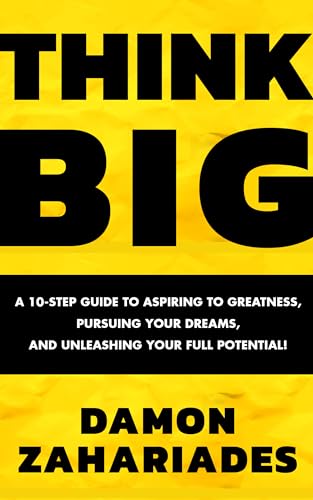









 Amnon Jackont was born in Israel in 1948 and grew up and in Ramat Gan. He was born to a bourgeois family that immigrated to Israel after WWII from Belgium and received a European education which laidemphasize on good manners. Yet, he soon realized that a well behaved boy cannot survive among children whose parents had come from different countries and preferred to settle accounts by fists rather than politeness.Since he was robust and physically strong, he had no problem dealing with belligerent boys.Yet apprehensive least he should harm other kids, he learned how to practice self-control.
In 1966 he was drafted to the IDF and participated in operations which are still kept in the dark. He was first wounded when the truck he rode hit a mine; he luckily survived and woke up in the hospital with a broken back. Four years later he was wounded again, while in service in a hostile foreign country, where he was imprisoned for several months before being released. His military experiences continually provide him with materials for his books....
He has written eight novels, a collection of short stories, a financial-documentary book, and the biography of one of the heads of Mossad. All of his books became best sellers in Israel and some were translated into several languages including Chinese and Japanese. He is also the editor of some 200 books of various genres: from thrillers, to history and philosophy.
When asked which of his occupations he liked in particular, Jackont answers, "The combination between all of them..."
Amnon Jackont was born in Israel in 1948 and grew up and in Ramat Gan. He was born to a bourgeois family that immigrated to Israel after WWII from Belgium and received a European education which laidemphasize on good manners. Yet, he soon realized that a well behaved boy cannot survive among children whose parents had come from different countries and preferred to settle accounts by fists rather than politeness.Since he was robust and physically strong, he had no problem dealing with belligerent boys.Yet apprehensive least he should harm other kids, he learned how to practice self-control.
In 1966 he was drafted to the IDF and participated in operations which are still kept in the dark. He was first wounded when the truck he rode hit a mine; he luckily survived and woke up in the hospital with a broken back. Four years later he was wounded again, while in service in a hostile foreign country, where he was imprisoned for several months before being released. His military experiences continually provide him with materials for his books....
He has written eight novels, a collection of short stories, a financial-documentary book, and the biography of one of the heads of Mossad. All of his books became best sellers in Israel and some were translated into several languages including Chinese and Japanese. He is also the editor of some 200 books of various genres: from thrillers, to history and philosophy.
When asked which of his occupations he liked in particular, Jackont answers, "The combination between all of them..."




















